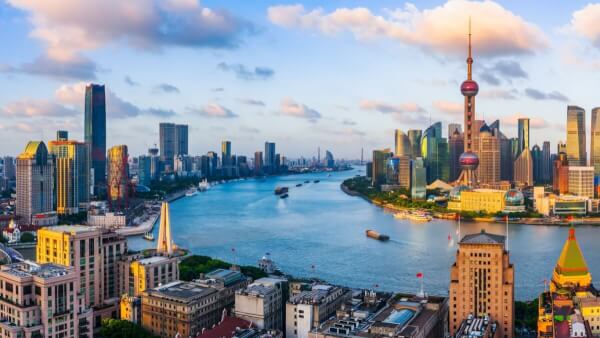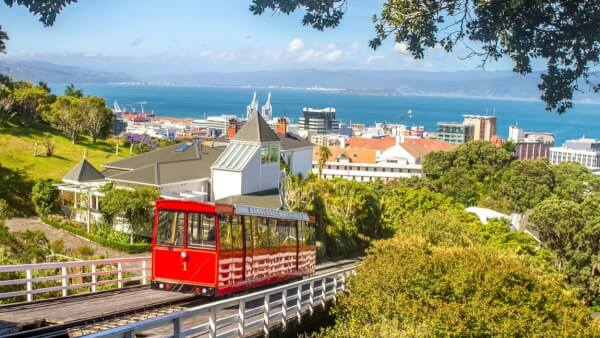Travelling to the Philippines from Australia. The Lowdown
Travelling from Australia to the Philippines? Let’s fill you in on the travel requirements, touristy and non-touristy spots and other need to knows in our guide

Thailand - the Land of Smiles - is full of variety, from the beaches and islands of Phuket and the Andaman coast, to temples and history in Chiang Mai and the hustle of Bangkok. Wherever you go, you’ll get a warm welcome, and some of the best food in the region. What more could you want?
This guide will give some ideas to help you start planning your trip of a lifetime to Thailand, including visas, safe travel and what to see while you’re there. We’ll also touch upon how you can avoid excessive fees and make your money go further with a Wise borderless account and linked Mastercard.
Doing your research and planning your trip is part of the fun - and can certainly mean you get to do and see more for your money.
If you’re headed to Thailand you’ll want to look into specifics depending on your chosen itinerary. For example, if you want to get around by motorbike, you’ll need the right license, insurance and helmet. If you want to get involved in adventure sports, thoroughly check out the credentials of any provider you may choose. And even if you’re simply planning on spending your week on a beach, you’ll be better off if you research in advance how to get from the airport to your hotel for the lowest possible fee.
There’s loads of advice and inspiration on the official Thai tourism website - including route plans and destination guides¹.
You can also get safety and visa information on the Thailand page of the Smart Traveller website². This government supported resource is there to help travellers headed all over the world, and is a good starting point for your research, no matter what type of trip you’re planning.
Thailand is a relatively low cost destination, but you still don’t want to pay more than you have to for your holiday. Check out these tips to help cut or avoid excessive bank fees when travelling.
Knowing whether or not you’re getting a fair deal on your currency exchange can be hard going. You need to look at the upfront fees, but it’s sometimes even more important to know whether the rate you’re being offered is any good. The benchmark to use when deciding is the mid-market exchange rate - the one banks get when buying currency themselves.
Find the mid-market rate with an online currency converter or app, and compare it against the rates you’re given when exchanging currency. You may well find your provider has marked up the mid-market rate - effectively, adding an additional fee on top of any commission you’re paying.
There are ways to avoid paying this extra margin, including currency exchange with the Wise borderless account and card. More on that later.
If you’re using ATMs abroad for cash withdrawals, or sending international payments, you’ll want to understand the potential costs to avoid nasty surprises later. Check your account terms and conditions to see if you’ll be charged to use your card overseas. Some accounts levy flat fees, percentage charges - or both - which can quickly mount up.
DCC is where you’re asked if you want to pay in your home currency instead of the local one - in this case, Thai baht - when you use your card abroad. It could happen in a store or restaurant, or when you’re using an ATM.
Wherever you see DCC, opt to pay in the local currency to avoid unnecessary costs.
A Wise borderless account can be a low cost, convenient way to hold, send and spend in dozens of different foreign currencies. Top up your account in dollars, and get currency conversion using the mid-market exchange rate with no hidden fees. Once you have the currency you need in your account you can spend with no foreign transaction fees, using your Wise borderless Mastercard.
See if you can save with Wise when you travel to Thailand.
Before you travel to any new place, it’s smart to familiarise yourself with some of the local laws, customs and traditions. Don’t assume things will be the same as back home - and check if you’re in any doubt.
A few things to think about - it’s illegal to travel in Thailand without ID so make sure you have some documentation with you at all times. It’s also against the law to have or use e-cigarettes or anything similar. Finally, take care with what you say or post on social media about the Thai state or monarchy. There are very strict rules about this, and foreigners have accidentally found themselves on the wrong side of the law due to a lack of understanding. Don’t let this happen to you.
Drug rules are strict in Thailand. Illegal drug use or trafficking are punished severely, and the death penalty can still be applied in Thailand. There have also been issues with travellers running into trouble for carrying medicines without a prescription - make sure you have any necessary documentation for medicines you’re bringing from Australia, and only get drugs after medical advice once you’re in Thailand.
If you run into trouble overseas, the Australian consular service may be able to help. Learn about what they can - and can’t - do, on the Smart Traveller website³.
If you’re flying to Thailand and have a confirmed ticket out of the country, you will usually not need a visa as long as you stay for less than 30 days. If you’re staying longer, or plan on working, you’ll probably need to get a visa from your local Thai Embassy or Consulate in Australia. Visas issued for overland entries are also usually valid for a shorter time - so check out all of the details online before you make any arrangements.
There’s a helpful FAQ section on the website of the Thai Consulate in Melbourne which gives more details and answers common questions⁴.
There’s a broad range of accommodation options in Thailand, from simple homestays in rural areas to boutique high end resorts on the beaches. Basically, you’ll get what you pay for, so if you’re going cheap, it’s worth looking for reviews and recommendations, and taking a peek at the rooms before you commit. During high season places book up quickly, and prices will fluctuate widely between weekday and weekend bookings, as well as picking up during festivals and seasonal peaks.
The Rough Guide suggests you consider the following price ranges when budgeting⁵:
In towns and cities you’ll be able to choose from a full range of transport options including tuk tuks, taxis, motorbike taxis and songthaew. A songthaew is a modified pickup truck with bench seats in two rows, which will make a regular route and pick up and drop off passengers along the way. This is a cheap option if you can work out the system in the town you’re staying in.
Be warned that taxi drivers can be fairly unscrupulous and will try to fix a price before travelling rather than using a meter. You may find they drive off without turning on the meter, and then simply kick you out if you argue. A smart alternative is to use Grab - South East Asia’s answer to Uber. It’s cheap and routes are guaranteed, although it can take a while to find a car at peak times, and may not be available in smaller towns.
For longer distance travel you can choose a bus, train or plane - Thailand is a large country, so internal flights are often the best way to get around if you’re covering a lot of ground.
The issue in Thailand is unlikely to be finding things to see - but cramming all you want to do into your allotted time. Careful research and route planning helps - here are a few ideas to get you started:
Getting excited for your holiday in Thailand? Here are a few more tips to set you up before you travel.
Planning your holiday should be fun - finding exciting locations and the perfect accommodation, as well as a range of activities which suit your interests. To make sure you can do everything you want, take a few minutes to think about how you’ll manage your money while you travel, too. Getting a Wise borderless account and linked Mastercard can mean you have fewer fees to pay, and more left in your pocket for yourself.
Sources:
All sources accurate as of 14 Jan 2020
*Please see terms of use and product availability for your region or visit Wise fees and pricing for the most up to date pricing and fee information.
This publication is provided for general information purposes and does not constitute legal, tax or other professional advice from Wise Payments Limited or its subsidiaries and its affiliates, and it is not intended as a substitute for obtaining advice from a financial advisor or any other professional.
We make no representations, warranties or guarantees, whether expressed or implied, that the content in the publication is accurate, complete or up to date.

Travelling from Australia to the Philippines? Let’s fill you in on the travel requirements, touristy and non-touristy spots and other need to knows in our guide

Want to import your boat from the US to Australia? In this quick guide, we’ll share the costs, timeframes and other need to knows

Want to import your boat from China to Australia? In this quick guide, we’ll share the costs, timeframes and other need to knows

Travelling from Australia to New Zealand? Let’s fill you in on the travel requirements, touristy and non-touristy spots and other need to knows in our guide

Explore our guide on the Commbank credit card travel insurance, detailing coverage, benefits, elligibility and essential tips for your next trip.

Both DragonPass and Priority Pass offer access to airport lounges worldwide. In this guide, we go over key differences that might make one a better fit for you.